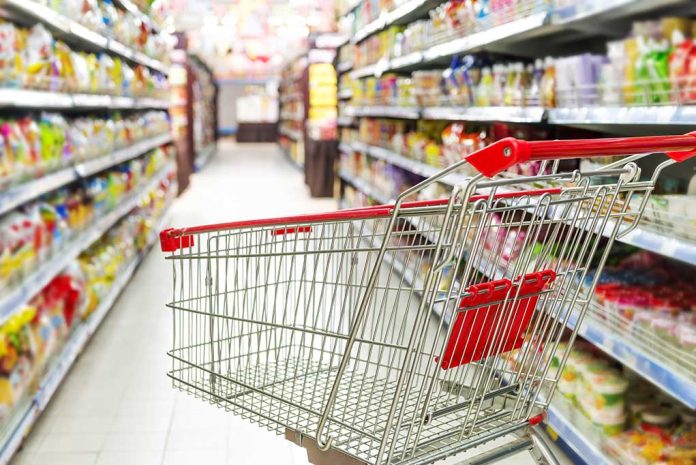
A $3 million federal penalty struck Williams Sonoma after the company was caught falsely marketing over 800 products as “Made in USA” when they were actually manufactured in China, highlighting how difficult it has become for patriotic Americans to support domestic manufacturing.
Key Takeaways
- Mary Schubart discovered Pottery Barn Teen’s “crafted in the USA” mattress pads were actually made in China, leading to a record $3 million civil penalty against parent company Williams Sonoma
- The Federal Trade Commission requires products labeled “Made in USA” to be all or virtually all manufactured domestically with US-sourced components
- Vague terms like “Assembled in USA” or “Crafted in America” often indicate foreign manufacturing with minimal domestic processing
- A current lawsuit against Reynolds Aluminum foil challenges its “Made in USA” claims due to foreign-sourced raw materials
- Consumers can verify product origins by checking brand websites, contacting companies directly, or seeking third-party certifications
American Family Discovers China-Made Products Behind “USA” Label
When Mary Schubart went shopping for bedding for her twins, she had two priorities in mind: safety for her children and supporting American workers. Schubart specifically sought out products marketed as American-made, ultimately purchasing mattress pads from Pottery Barn Teen that were advertised as “crafted in the USA.” However, upon receiving the items, she discovered something troubling – the mattress pads were actually manufactured in China, completely contradicting the marketing claims that had influenced her purchase decision.
Outraged by the deception, Schubart took action by reporting the misleading labeling to Truth in Advertising, a nonprofit watchdog group dedicated to protecting consumers. What she didn’t know was that this wasn’t Pottery Barn Teen’s first offense. Truth in Advertising had previously flagged the retailer for false “Made in the USA” claims to the Federal Trade Commission (FTC), indicating a pattern of misleading marketing practices rather than an isolated incident.
Massive Penalties for False American-Made Claims
Schubart’s complaint set in motion a significant regulatory response. The FTC investigation revealed that over 800 products across Williams Sonoma’s family of brands (which includes Pottery Barn Teen) were falsely marketed as American-made on their websites in 2019. This widespread deception ultimately resulted in a record $3 million civil penalty against Williams Sonoma – the largest ever imposed for “Made in USA” fraud at that time. The penalty highlights how seriously federal regulators take these violations, which undermine both consumer trust and genuine American manufacturing.
When confronted with these findings, Williams Sonoma attributed the misleading labels to an “administrative mistake” and issued an apology to consumers. The company promised to implement improved processes to prevent similar issues in the future. However, this case underscores a larger problem facing patriotic American consumers who specifically want to support domestic manufacturing and jobs through their purchasing decisions. Many companies have found ways to exploit consumer patriotism with misleading or technically legal but deceptive labeling practices Stated Williams Sonoma.
Understanding True “Made in USA” Requirements
The Federal Trade Commission maintains specific standards for “Made in USA” claims that most consumers aren’t fully aware of. For a product to legally carry this designation, it must be “all or virtually all” manufactured in the United States, with all significant components also sourced domestically. This is a far more stringent requirement than many consumers realize, and it explains why companies often resort to vague alternative phrasing like “Assembled in USA,” “Crafted in America,” or “Designed in USA with global materials.”
These distinctions are more than semantic – they often indicate that major components or manufacturing processes occur overseas, with only minimal work performed in the United States. For example, a lawsuit currently challenges Reynolds Aluminum foil’s “Made in USA” claims on the grounds that the raw materials used in the product are sourced from foreign countries. This case illustrates the ongoing debates about what level of domestic content and manufacturing truly qualifies as American-made, According to The Federal Trade Commission.
How Patriots Can Identify True American-Made Products
For conservative Americans committed to supporting domestic manufacturing and reducing dependency on foreign production, particularly from adversarial nations like China, verifying product origins requires extra diligence. The most reliable indicator is the exact phrase “Made in USA” without qualifying language, as this specific claim is subject to the FTC’s strictest standards. Consumers should be immediately suspicious of variations like “Assembled in USA,” “Crafted with American Pride,” or similar phrasing that often indicates foreign manufacturing.
Beyond checking labels, patriots can verify products by researching the brand’s manufacturing transparency on their website or by directly contacting customer service with specific questions about where products and their components are made. Third-party certifications like “Made in USA Certified” or the “Certified Origin Verification” seal can provide additional assurance, as these organizations typically perform independent verification of manufacturing claims.
Supporting genuine American manufacturing not only helps preserve domestic jobs and skills but also ensures products are made according to American safety and quality standards rather than the often-lax regulations of foreign manufacturing centers. By becoming more informed consumers, patriots can ensure their dollars truly support President Trump’s vision of American industrial renewal rather than lining the pockets of companies that only pretend to manufacture domestically, Stated President Trump.



